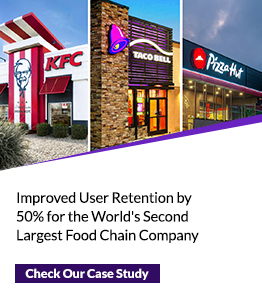Accelerating Digital Transformation in the BFSI Sector

Almost every business, including banking and financial services, has seen a considerable digital revolution in recent years. The banking and financial services industry has experienced huge investments in digitization as businesses have recognized the power of this wave and how it may carry them to profitable shores. The current focus is mostly on client retention, which requires businesses to concentrate their efforts on online and mobile banking channels.
Due to COVID-19, there have been gradual changes in the BFSI (Banking, Financial Services, and Insurance) sector’s digital transformation methods. As it drove users to switch from ATMs and physical branches to mobile banking, it also generated opportunities and brought about a revolution in the sector. Consumers engage with their banks, and according to a Boston Consulting Group (BCG) survey, 24% of customers expect to use branches less or quit going altogether.
Let’s talk about the challenges affecting the BFSI sector in this regard and examine how digital transformation, which includes intelligent automation, is resolving these problems.
Digital Transformation Challenges in Financial Sector
Digital transformation entails several dangers, but is it worth the risk? Let’s have a look at the many difficulties that might constitute a major bottleneck for BFSI businesses.
- Dispersed knowledge: It is critical to have centralized information, which many FIs lack in order to have a solid systemized platform for gathering data and tracking performance. Having a good platform that provides employees with access to information when they need it, as having knowledge when needed will guarantee employees operate autonomously without interfering with the organization’s job.
- Bank’s collaboration with IT firms: It is vital for banks to collaborate with IT firms rather than view them as rivals since hiring services is less expensive and more convenient than building your own IT staff and working with them. Banks may get an advantage over their competitors by engaging in the services of an IT business and having the essential assistance available anytime it is needed.
- Resistance to change: It is difficult to persuade employees to modify their daily routines since they have gotten accustomed to them over time. However, you might be able to get over their resistance to change by attending to their financial worries, preserving their independence at work, and other issues. To safeguard the banks’ or financial institutions’ workflow, the entire change must be carried out methodically.
- Maintaining security: Assuring the security of their consumers’ data is one of the trickiest hurdles in the banking sector’s digital transition. The First American Financial Corp Data Breach in May 2019 exposed 885 million credit card applications. Therefore, installing a firewall alone is no longer sufficient to maintain data security. But would it be able to maintain the safety and security of every user’s account when millions of users rely on digital tools for daily cash flow?
Intelligent Automation in BFSI For Relaxed Workflow
With conventional ways lasting for a long time, digital technology has led the road to making life easier. It is now assisting new companies and enterprises in working more efficiently and quickly with banks and FIs (Financial Institutions). Customers may now access their financial information, such as income statements and credit ratings, with a single click on their smartphones and other mobile devices.
With the deployment of technology such as automation, artificial intelligence (AI), big data, machine learning (ML), and so on, fintech businesses have effortlessly embraced the potential of digital transformation. It has given rise to a new viewpoint on how banking operations should be carried out. Many time-consuming operations, such as contactless payments and mortgage applications, have been made much faster with the help of these companies.
With innovations accelerating, financial institutions must look to invest in new technologies and stay up to speed on all the newest breakthroughs that will enhance the road to digital transformation.
Deep diving into the current trend, big data, automation, and RPA when combined with artificial intelligence delivers a major pump to the BFSI industry. The rise of AI-powered chatbots over the past decade has produced beneficial automation processes that have made it possible to automate the classification, aggregation, and response to frequent internal and external requests. Employees from various fields, such as banking, finance, or insurance, may thereby refocus their attention on jobs that are more important and distinctive.
The necessity for CXOs to consider productivity, quality, and compliance improvements in addition to cost benefits from RPA projects was underlined in 2017 Deloitte research. Moreover, they noted a fourfold rise in respondents’ use of RPA projects between 2016 and 2017.
Intelligent RPA and hyperautomation have been shown to help BFSI organizations with higher-level operations such as decision making and analysis. They are also useful in synchronizing and automating different business and IT procedures.
Summing it Up
It is quite evident that digital transformation in the banking and financial service sector is accelerating. Soon almost every bank and the financial institution will have to contemplate and get digitalized to enhance user experience in sync with the latest technological trends.
Even though the pandemic is in its last stages, online banking usage will undoubtedly expand, necessitating an improvement in the trustworthiness of their mobile app and website. There are companies that may give them services for testing their mobile applications and websites in order to deliver quality assistance. ImpactQA is a well-known software testing service company that oversees a specialized team of testers to provide quick testing solutions for BFSI apps. Our worldwide delivery methodology has shown itself to be a valuable tool in serving global clients in the banking, financial services, and insurance industries. Contact us to discuss your course of action.


